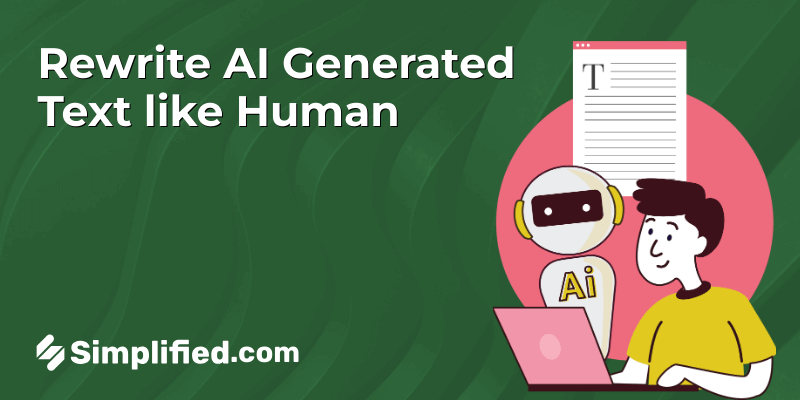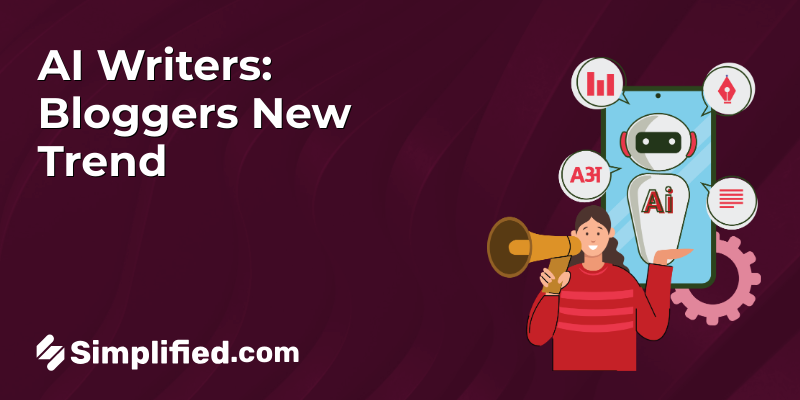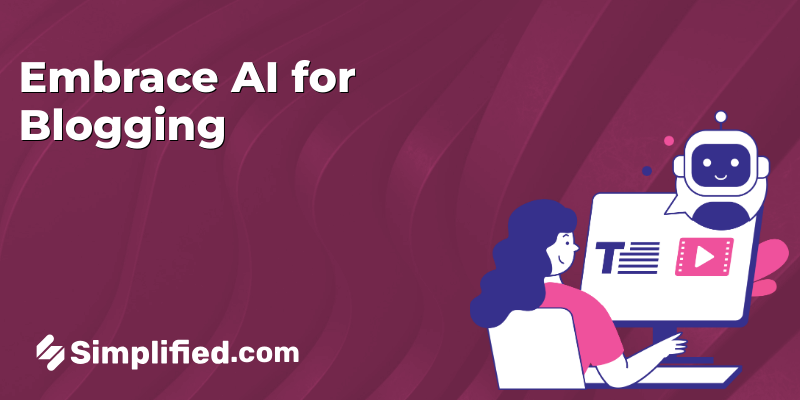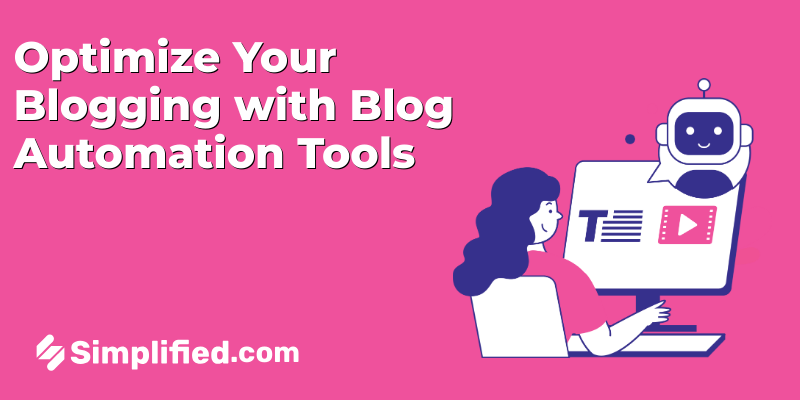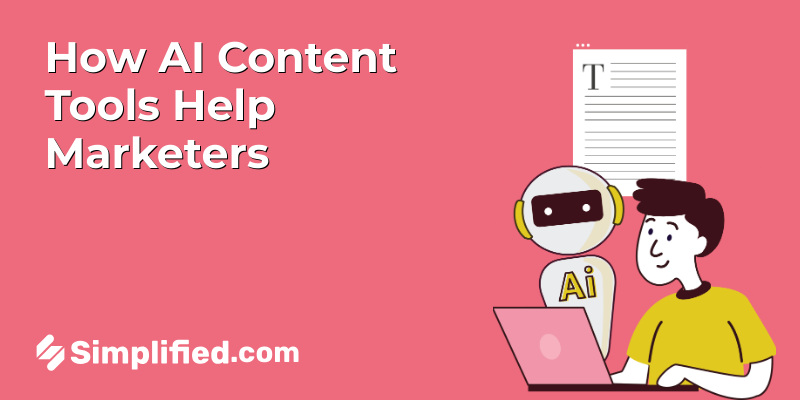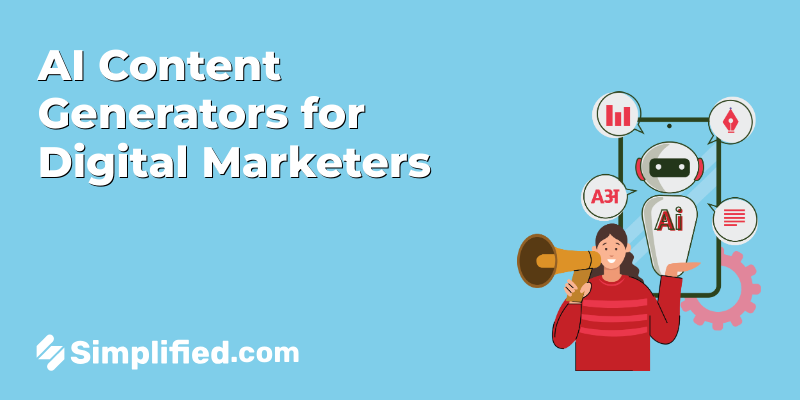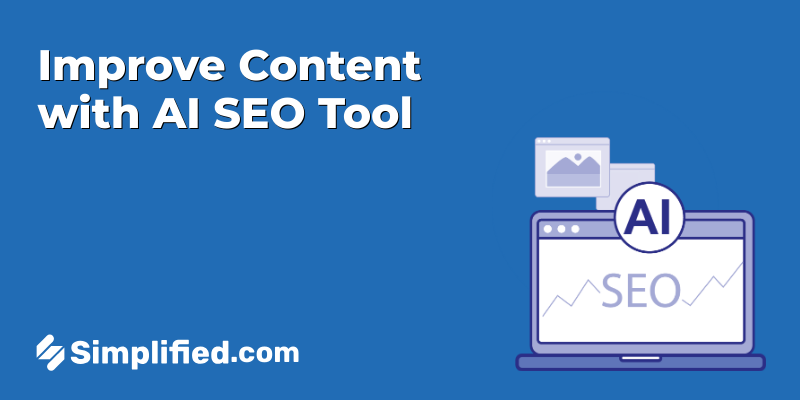
As digital marketing grows increasingly data-driven, AI-powered writing tools—often referred to as “AI writers”—are transforming how businesses approach content creation. These tools help marketers, content creators, and businesses generate content faster and more efficiently while maintaining high standards. However, the potential of AI writers goes beyond mere speed or cost-saving. In the coming years, these tools will play a larger role in shaping content strategies, fostering creativity, and improving audience engagement.
This blog will explore the current impact of AI writers in digital marketing, what to expect in the future, and the advantages and challenges they present.
The Current Role of AI Writers in Digital Marketing
AI writers are tools powered by artificial intelligence, utilizing machine learning and natural language processing (NLP) to produce content based on user inputs. They process vast amounts of data to recognize language patterns, predict suitable phrases, and replicate the required tone and style.
Here’s a look at how AI writers are currently being used in digital marketing:
- Creating SEO Content: Many businesses use AI writers to generate blog posts, product descriptions, and landing pages designed to rank well in search engine results. These tools help marketers craft content optimized for SEO by targeting specific keywords and improving visibility.
- Email Marketing: AI-powered writers are particularly useful for email campaigns, where they can generate personalized subject lines and email copy that resonate with different segments of the audience.
- Social Media Posts: AI tools assist marketers by quickly generating short-form content tailored for social media platforms, allowing businesses to maintain a steady stream of posts across channels like LinkedIn.
- Writing Ad Copy: AI is also applied to crafting ad copy that appeals to target audiences. By testing various formats and messages, these tools help marketers identify what works best for specific campaigns.
Bonus: Top Marketing Automation Tools for Every Business Size
How AI Writers Are Influencing Content Strategies
AI writers are having a major impact on content strategy development. Rather than relying on guesswork or intuition, marketers can now use AI to make data-backed decisions about their content.
Content Creation Guided by Data
AI writing tools can analyze a wide range of data, such as search trends, user preferences, and competitor performance, to suggest what topics will perform well. This enables marketers to create content that addresses gaps in the market and aligns with audience interests.
For example:
- Topic Suggestions: AI tools can recommend content ideas based on trending topics and keyword analysis, ensuring marketers focus on content that’s relevant to current discussions in their field.
- Target Audience Insights: By analyzing user behavior and engagement patterns, AI helps marketers tailor content to different audience segments, increasing its effectiveness.
Personalization at Scale
Personalization is a key factor in modern marketing, and AI writers can help achieve this by generating content tailored to individual preferences. AI can create personalized messages for email marketing, advertisements, and even website copy, ensuring that the tone, message, and offers are aligned with each user’s needs and interests.
For instance, AI might:
- Adjust content based on customer data, such as previous purchases or browsing history.
- Use dynamic content blocks that change based on user behavior.
Bonus: Top Influencer Marketing Tools to Improve Your Campaign Management
Adaptable Content for Various Platforms
Each digital platform has its own conventions, and AI tools can adjust content to fit those expectations. Whether it’s a blog post, a tweet, or an Instagram caption, AI can modify the tone, length, and format to suit the platform and its audience. This adaptability helps maintain brand consistency while ensuring content is effective across various channels.
The Future of AI Writers: What’s Next?
Looking ahead, the role of AI writers in digital marketing will continue to evolve. As AI technology becomes more advanced, these tools will take on even more complex tasks, contributing to a wider range of marketing efforts.
1. More Advanced Creativity from AI
While AI has historically been better at repetitive tasks, new advancements in machine learning and NLP suggest that future AI writers could become more creative. With more sophisticated algorithms, AI could generate content that is not only data-driven but also more innovative and engaging.
In the future, AI writers might:
- Develop longer-form content that maintains the company’s voice and tone.
- Create narratives or stories that appeal to specific customer personas.
- Experiment with interactive content, such as quizzes or polls.
2. AI Writers as Collaborators
Rather than replacing human writers, AI is likely to become a collaborative tool. In this partnership, AI writers tools could handle routine tasks like research, content structuring, or SEO optimization, allowing human writers to focus on more strategic or creative aspects of content creation.
AI might:
- Help generate outlines for articles, freeing up time for writers to focus on detailed content creation.
- Suggest improvements for grammar, tone, and clarity while maintaining consistency in style.
- Provide real-time optimization feedback for SEO, keyword usage, or readability.
3. Content Curation with AI
Content curation is another area where AI writers could play an even larger role. With the growing volume of digital content, marketers can use AI to sift through vast amounts of information and identify relevant articles, studies, or data points that can enrich their own content. AI tools like Scoop.it could also suggest the best content to share with audiences based on their preferences.
This could lead to:
- AI-driven content feeds that present personalized articles, blog posts, and videos to users.
- Recommendations for content types, such as infographics or case studies, based on audience behavior.
Bonus: Impact of Influencer Analytics Tools: Track Influencer Marketing Performance
4. Ethical and Transparent AI Writing
As AI continues to be integrated into digital marketing, ethical concerns will become more important. In the future, AI writers might include features that help users distinguish between AI-generated and human-created content. These tools could also highlight how much of the content was written by AI, particularly in industries where trust and transparency are essential.
Marketers may also need to ensure that AI-generated content adheres to ethical guidelines, avoiding biases or inaccuracies in the material produced.
Benefits of Using AI Writers in Digital Marketing
As AI writing tools become more sophisticated, they offer several advantages to businesses and marketers:
- Time and Cost Savings: AI writers can produce content quickly, helping marketing teams meet tight deadlines without adding significant costs. This allows businesses to scale content production efficiently.
- Consistency: AI writer ensure a consistent brand voice across various channels and content types, from blogs to social media posts.
- Scalability: AI makes it easier for businesses to generate a large amount of content without the need for expanding the workforce. This is especially helpful for companies that need to scale up operations quickly.
- Timely Adjustments: AI writers can quickly adapt content to changes in trends, making it easier to stay current in a fast-paced digital world.
Limitations of AI Writers in Digital Marketing
While AI writers offer many advantages, they are not without their limitations:
- Limited Creativity: Despite advances in AI, these tools still rely on data patterns and may struggle with coming up with truly original ideas. AI-generated content can sometimes sound repetitive or formulaic.
- Dependence on Data: AI tools work best when they have access to accurate and relevant data. Inaccurate data can lead to misleading or subpar content.
- Quality Control: AI can generate content quickly, but human oversight is still necessary to ensure quality. AI writers may miss subtle nuances or tone adjustments that a human writer would catch.
- Ethical Considerations: The use of AI in content creation raises questions about transparency. Businesses need to ensure that they disclose when content is generated by AI and consider the ethical implications of using AI for sensitive topics.
Preparing for the Future of AI Writing in Marketing
To make the most of AI writing tools, businesses and marketers should be proactive in adopting and adapting to these changes:
- Ongoing Learning: Encourage team members to stay up to date on AI advancements, so they can use the latest tools effectively.
- Combining AI and Human Efforts: Use AI to handle time-consuming tasks like keyword research, content structuring, and basic copywriting, while focusing human efforts on creative and strategic tasks.
- Transparency with AI: Be clear with audiences when content has been generated by AI, especially for industries where trust and authenticity are critical.
- Performance Monitoring: Track how AI-generated content performs through analytics, and adjust strategies as needed.
Conclusion
The role of AI writers in digital marketing is set to expand. These tools are becoming indispensable assets in content creation, enabling businesses to generate high-quality, data-driven content that resonates with audiences. As technology continues to improve, AI will not replace human creativity but will complement it, helping businesses meet their marketing goals efficiently. By embracing these tools and understanding their limitations, digital marketers can stay ahead of the curve and create engaging, relevant content that connects with their audience.











